CAMPBELLs, LUGGs, & BLACKWELLs of Nelson, PA
Bill Thompson's Memoir
Chapter 9 - My Brother, Henry "Hank" Thompson
[Note: If you go to a footnote, at the end of the footnote there will be a "back-link" character, '↵,' as a return link. Click on that and it will return you to where you came from -- no need to scroll back thru countless paragraphs. The back-link should work with screen readers too.]
[The target audience for this chapter, is descendants of my parents. Anyone is welcome to read it, but it may not interest the general public.]
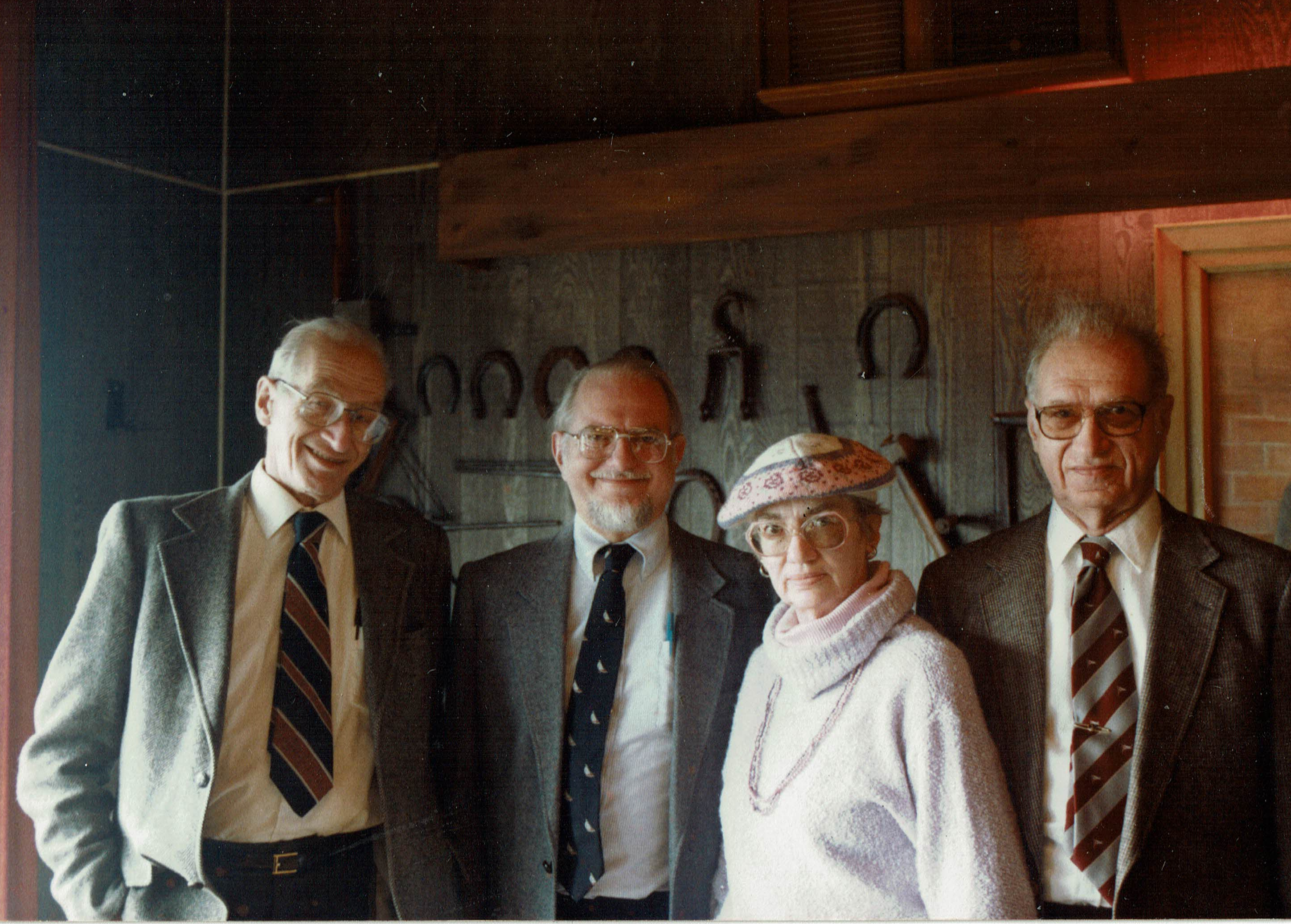
MY BROTHER: Henry G. Thompson (1922 - 2009)
Almost Complete opposites
Manual Slideshow - Click on arrows
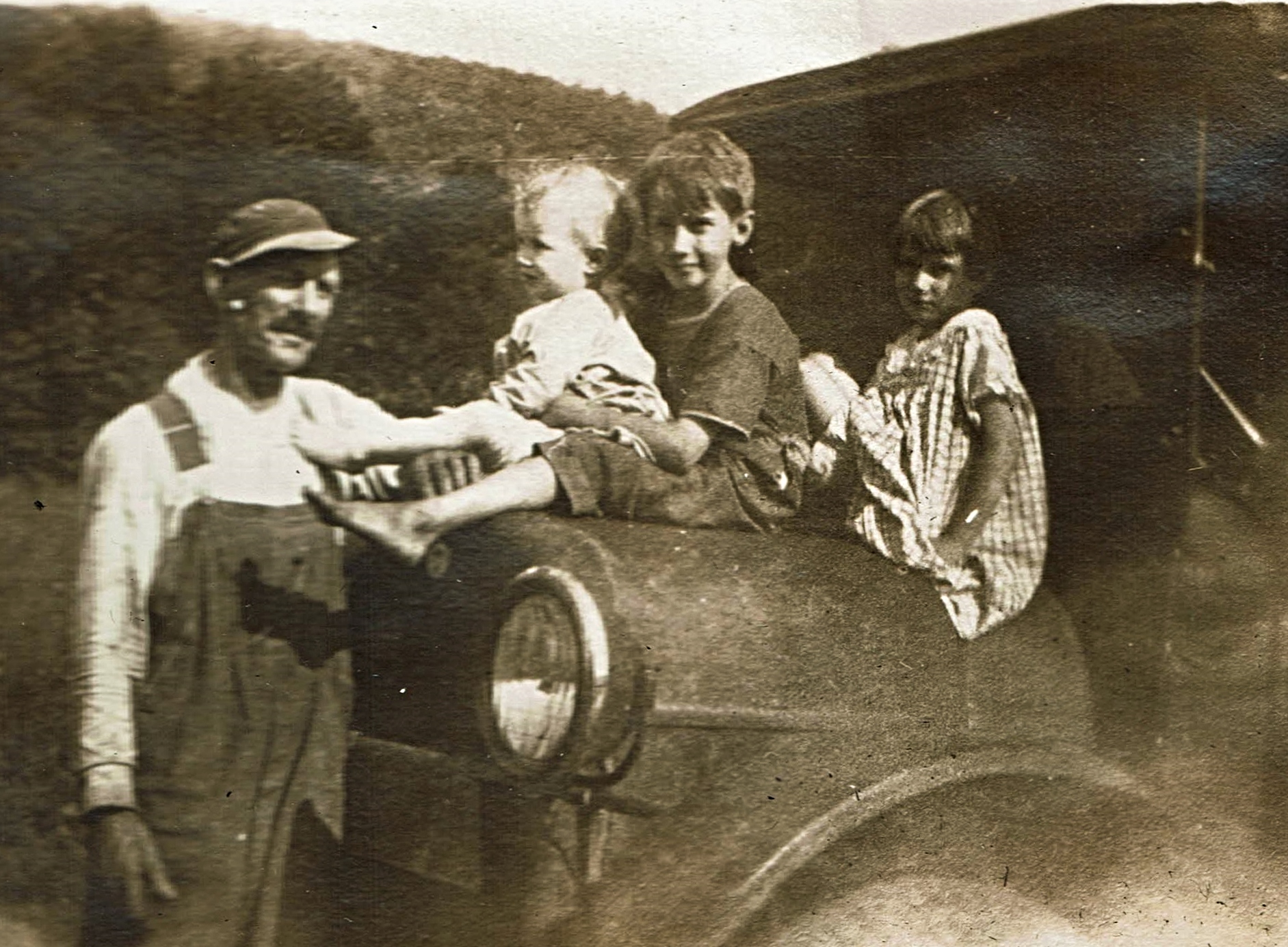
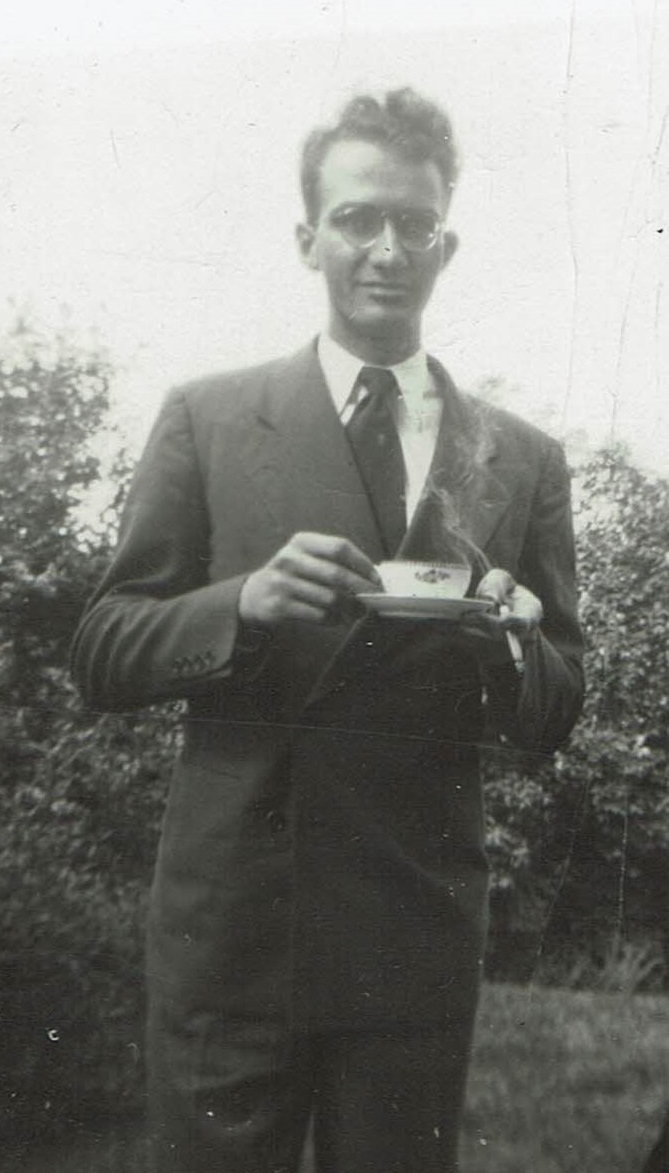
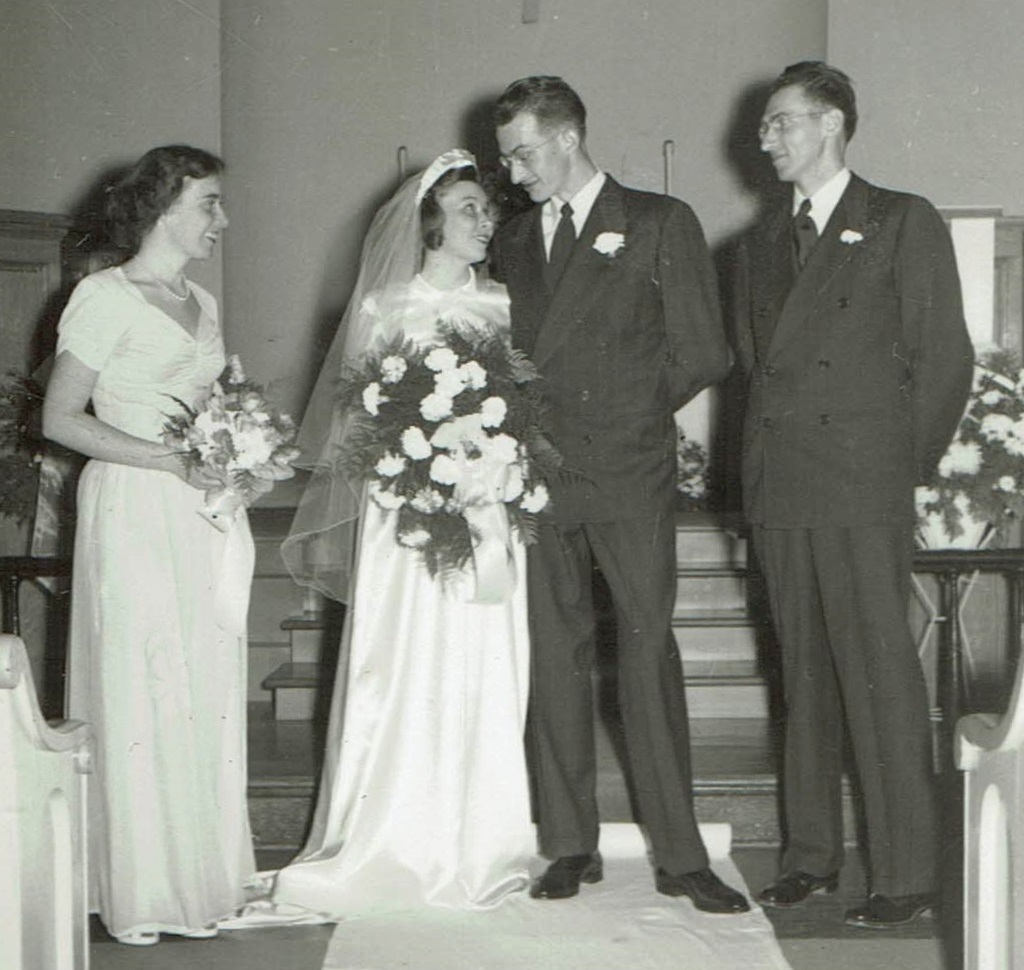
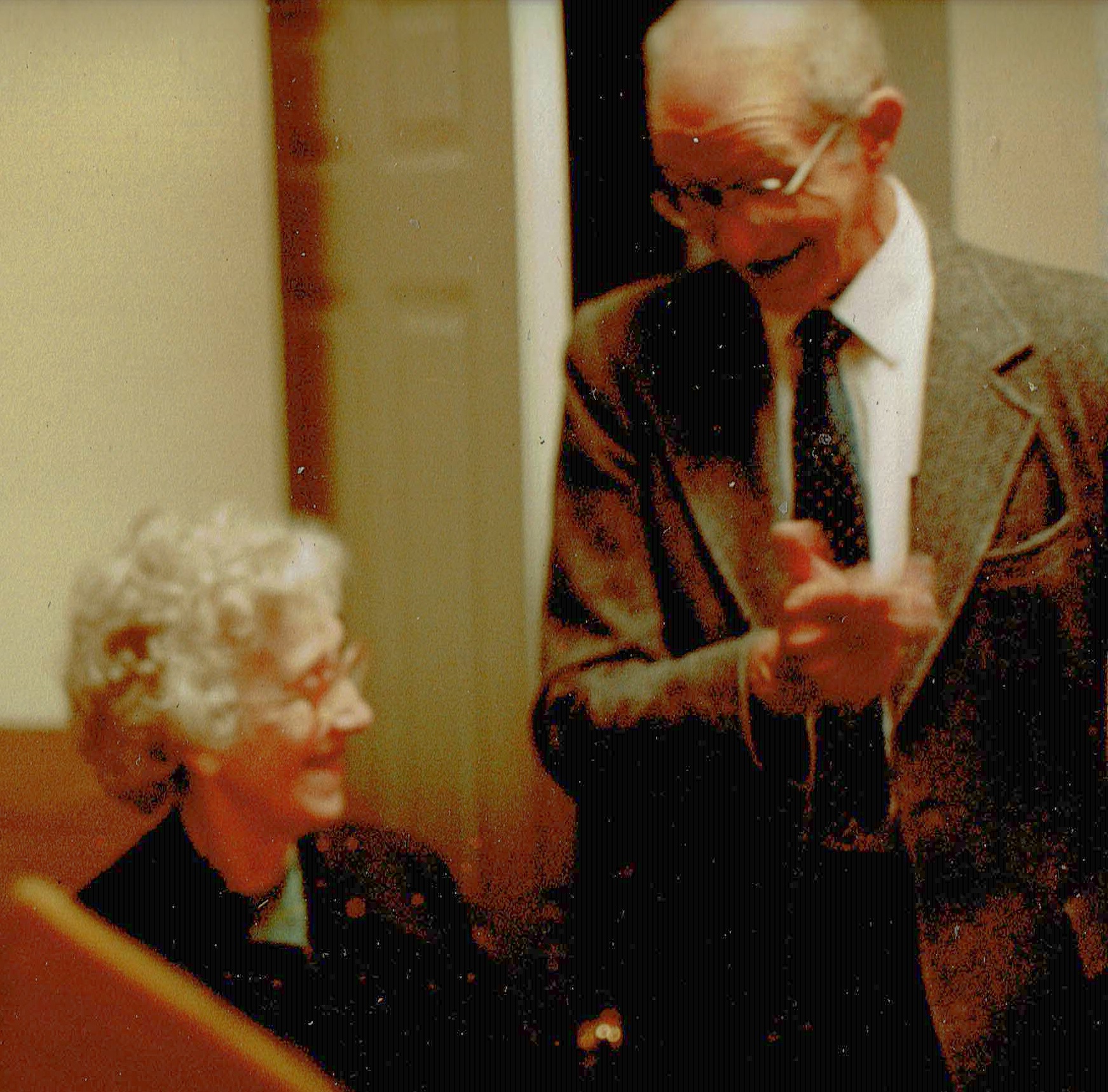
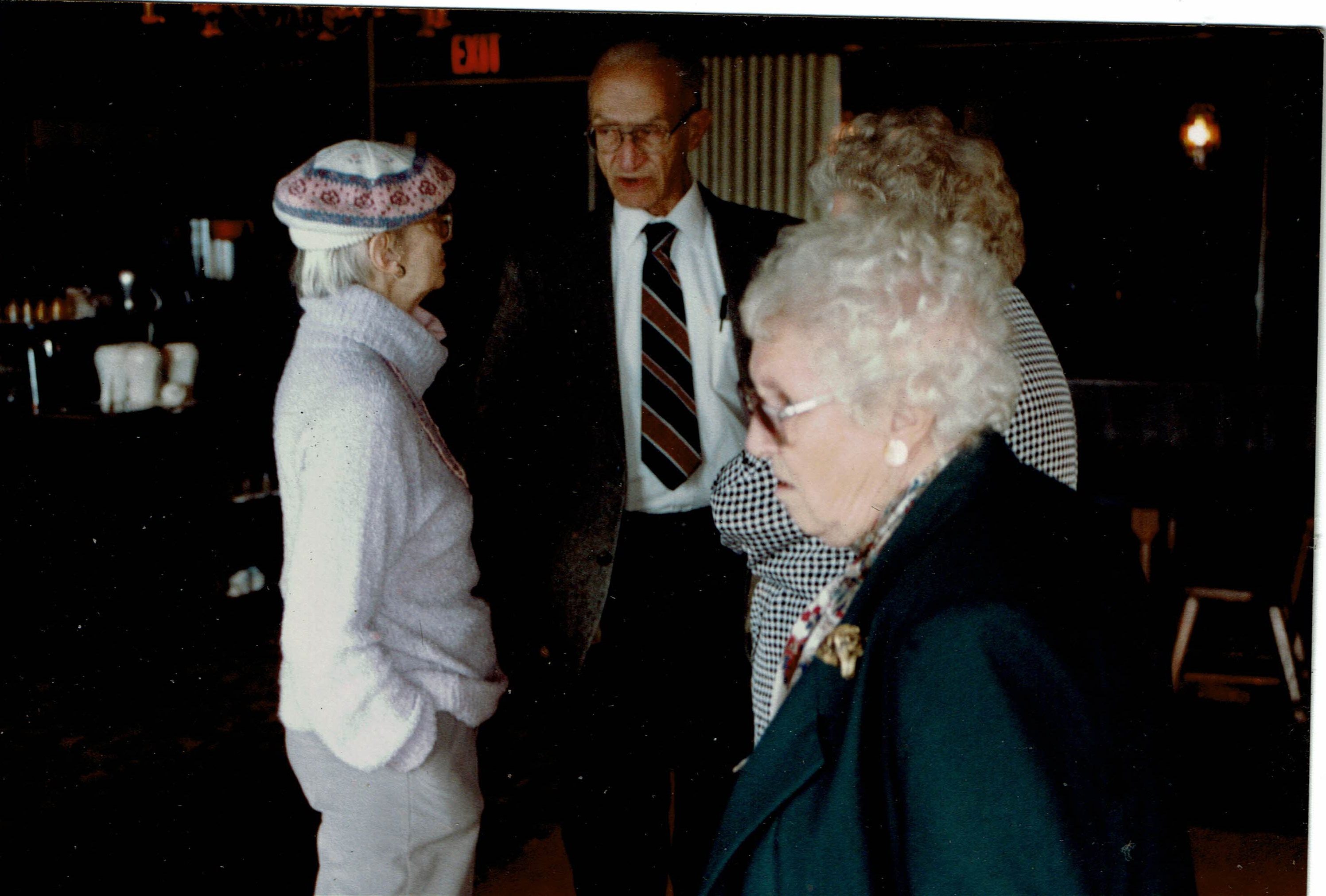
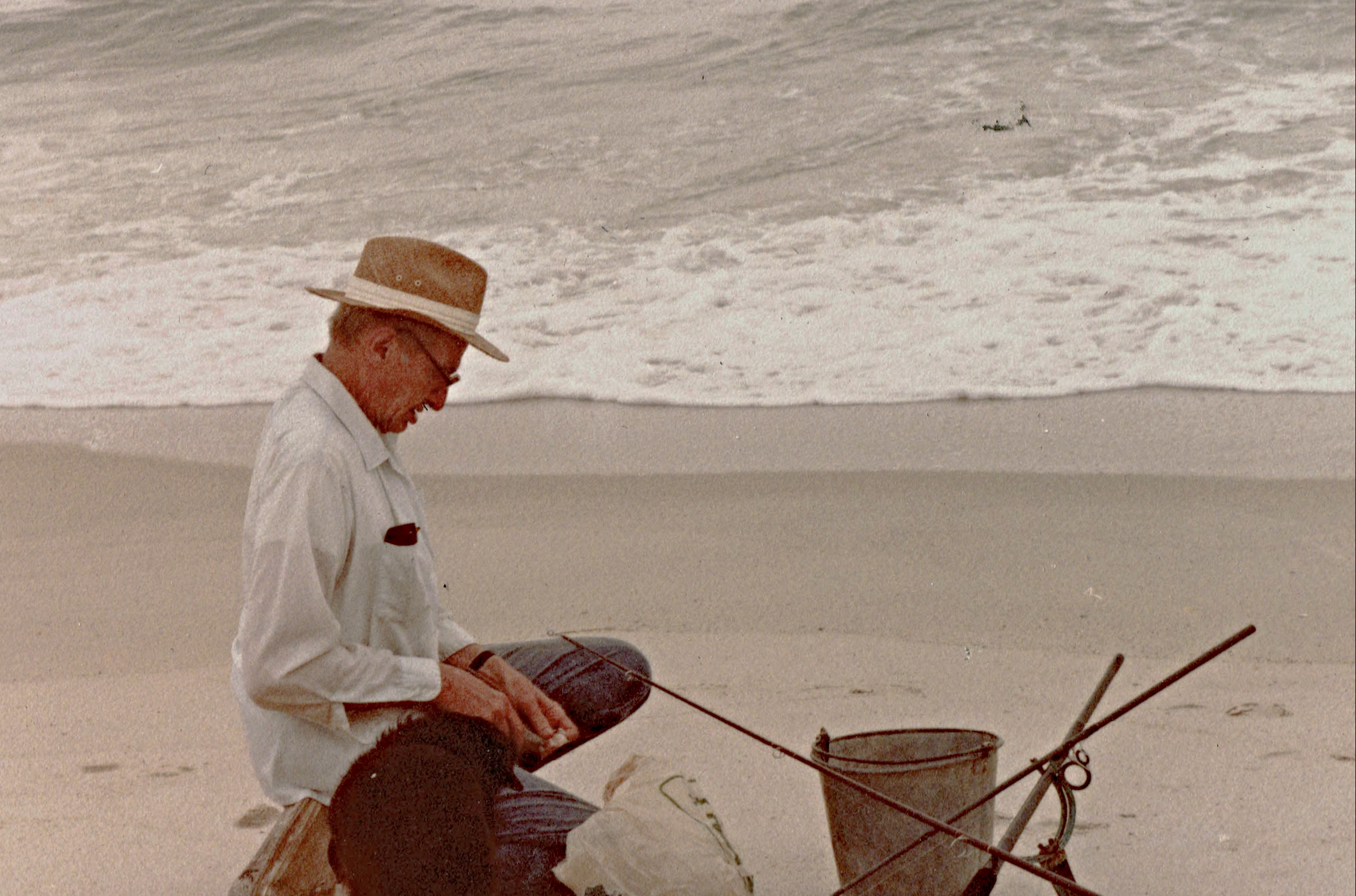
It's easy to think of Anne and Hank as being complete opposites. He was a mathematical prodigy, but math was her bugaboo. She had great people skills. Perhaps unfairly, I think of him as having "social dyslexia" and often seeing things backwards. Sometimes I thought that if he saw a "little old lady" struggling with an attempted purse snatcher, he would sympathize with the poor teenager, who was being savagely attacked with an umbrella.
He was closest in age to me (13 years older vs Tom's 17 years) and we often shared the same bedroom, but I knew him the least well. Partly because he was away to college; then in the army in Washington state; then living in Norwich, NY; and then in the air force in Germany, Pakistan and Maryland.
And partly because I felt his wife bullied me, so I often avoided them. Her excuse was that my mother had over-protected me (true) and that I needed to be "toughened up" to be able to stand army life when I got drafted. I never bought that story. I'd had rheumatic fever as a kid and still had a murmur. I instantly flunked my physical when the doctor walked down the line and gave us a once-over glance and was 4-F, unfit for service. I believe she just picked on me for the fun of it.
When Anne and I talked about Hank, she would almost always say, "He was such a sweet child." My earliest clear memories of him were when he had polio and was in a body cast for spinal scoliosis. -- miserable in the summer heat before a/c, with sweat rolling down his neck and disappearing beneath the cast. And later, of him working (w/o the cast) on his extensive stamp collection -- stamps spread out on a card table or dining-room table, stamp tongs, Scott's catalogue at hand, a Stanley Gibbons Color Guide, perforation gauge, an open bowl of carbon tetra-chloride to detect watermarks filling the room with toxic, brain killing vapors and a towel for to place the carbon-tetrochloride soaked stamps on till they dried (which didn't take long).
Before my time he went to a number of country schools in the Binghamton area. When they lived in The Town of Binghamton just south of the city in a neighborhood known officially as "Park Terrace Heights" (and informally as "Dog Hill") he formed a close friendship with two neighbors named 'Courtright,' and the three referred to themselves as "us twins."
He had a remarkable brain. When a teacher presented a difficult math problem he'd often have the right answer immediately. But if the teacher asked what steps he'd gone through to get the answer, he often was out of luck and didn't get credit because he hadn't gone through any conscious steps -- the answer just popped into his head.
Like a number of card players I've known, he could remember every trick, in every hand, in every game of bridge all night. Who had bid what. And who had played what. He would sometimes say "In the third hand of the fourth game tonight, when you got the lead you lead the __ of __. But you should have led ___." More remarkably he could play simultaneous games of chess -- blindfolded. One of his hobbies was cryptography, which I suspect came in useful when he was in the Air Force, but assigned to NSA. I say "suspect" because he wasn't allowed to say much about what he did there.
When he was going to Syracuse U., he would come home for holidays and breaks and bring homework. Some of his accounting courses had amazingly dull and pointless exercises. Just doing many, similar arithmetic problems for drill. Not teaching you anything -- just the same old problems done in grade schools for years, but with more digits in the numbers and more numbers in a column. Stuff that any accountant or bookkeeper would have done on an adding machine. Naturally they bored him to death. But they seemed like fun exercises to me because I wasn't used to working with so many digits on a page. So, I would do his accounting exercises for him while he was home.
When he was gong to Syracuse U., one of the jobs he had was as a short-order cook, 3rd shift, at a greasy spoon lunch counter. They didn't get a lot of customers that late at night. Mostly regulars. The menu never changed, so he was annoyed by one of the regulars, would come in every night and say "What's new on the menu tonight?" One night, shortly before that customer was due, a bat got in the kitchen and they somehow killed it with brooms. Just before that customer came in and asked, "What's new on the menu tonight?" And was told "bat burgers." Thinking he was playing along with the joke, he answered "Fine, I'll have one of those." City health department and liability insurance not being then what they are now, Hank discretely dropped the bat in the deep fat fryer basket, and in a couple of minutes, put it in a large hamburger bun and served it. The customer took a bite, realized something was different than expected, opened the bun, put a napkin over his mouth and made a mad dash to the bathroom. Apparently neither the owner nor the health department were notified, so Hank didn't lose his job. But that customer never again asked "What's new."
A couple of stories about Anne's practical jokes say more about her than him. She didn't play them often -- all the better to surprise. When she thought he's gone out for a night of poker and drinking, she liked to "short sheet" his bed. But the crowning achievement (from a practical joker's point of view) -- and also the meanest, was the way she sabotaged one of his big dates. There was a girl he'd been wanting to ask out for some time, but was hesitant to try. Finally he found the courage to ask her out and was ecstatic that she accepted. You need to know that he had major sinus problems. This was before the days of pocket Kleenex. He would go through six or more handkerchiefs per night, so he would stuff he pants and jacket pockets with them, using the ones in his pants pockets first. She waited till he had done that. When he left the room for a minute, she removed one of the handkerchiefs from his sports jacket pocket (knowing he'd use the handkerchiefs in his pants pockets first) and replaced it with a pair of her frilliest, laciest, underpants. Sure enough that first date went well -- until, later in the evening, he reached into his jacket pocket for a handkerchief --- and pulled out a pair of lacy panties. No amount of explaining worked. "It's not what you think." "They're my sister's." "She's playing a joke on me." One relationship down in flames.
All during WW2 he tried to enlist but was turned down by all the branches, including the Coast Guard. Nobody wanted someone with curvature of the spine, who had double hernia operations, who was color blind and couldn't see much with out his glasses and was post polio. Even at some of the peaks of the war, when they were desperate for manpower, he was turned down. Given that history, it's bizarre that he was drafted, when he had a job he liked, in what appears to have been one of the Broome Co. Draft Board's biggest screw ups. The Korean War was still active and the board had a significant quota to fill. But, rather than take younger, more fit candidates, they chose to fill all the slots, with guys who had been repeatedly passed over -- for sound reasons. They took a bunch of guys who had serious medical issues, but were about to turn 26 and become ineligible for the draft, and filled their quota entirely with them. Hank was the only one who made it through basic training. All the others were given medical discharges. I vaguely recall him being stationed in El Passo, because I remember that his chronic sinusitis cleared up in the higher altitude and low humidity. I have some of his letters from then packed away, in which he mentions a school he'd applied for. As I recall the army would send him there during his 2nd year of service -- but only if he would agree to extend his enlistment for one additional year. He took the deal and was sent to the Hanford works in eastern WA, as part of a radar controlled anti-aircraft battery, protecting our plutonium production facilities from Soviet bombers. Regardless of whether his being stationed there deterred the Soviets from attacking it may have been a factor in his later getting bladder cancer although thyroid cancer was probably a bigger risk.
But while stationed there, he met a WAC, Sgt. Ellen Diehl, who had a sharp mind and an even sharper tongue. They arranged some joint leave time and he brought her home to "meet the family." Dad was a tough audience to audition for. About the only female he approved of "marrying into the family," was my Cousin Dave's first wife. I can't imagine anyone not liking Evelyn.
Anne once told me a strange story about that visit. A story that Hank told her. Why he would tell it to her seems hard to understand. She thought he told her because he regarded it as "cute." As I remember it, Hank told Anne that before the visit he said to Ellen, "I'm anxious for you to meet my sister. She's dear to me and I love her very much." To which Ellen supposedly replied "In that case, I hate her." To me that sounds more like jealousy than "cuteness." Assuming that account of the conversation is reasonably accurate, I find it hard to imagine anyone thinking it was a good idea to tell it to your sister. (Unless they had social dyslexia.)
During that visit, Ellen quickly sensed the rivalry between my mother and grandmother and tried to build an alliance with gram as a counterweight to whatever influence mom and Anne might have. I think with some success. After having a daughter in WA, their army time was up and they moved to Norwich , NY where he managed an Army & Navy store. I don't remember the details (if I ever knew them), but the owner got into some kind of a mess (bad check maybe) and the store closed.
Hank could never have passed the Air Force's physical, which was more rigorous than draftees, but because he had been out of the army for less than a year, didn't need one. He enlisted in the Air Force and was sent to training in Ithaca, NY on servicing data processing equipment, and moved there with his family. He put in 17 years with the Air Force, which with his time in the Army enabled him to retire with 20 years credit. Most of that time was on assignment to NSA. Our parents were aging, so when he retired, he took a job with Xerox, servicing their copiers, living first in Susquehanna, PA and then in Great Bend, PA. After they died, he moved back to MD, reading and fishing. He had smoked for years, but found a way to quit that worked for him.
COPD finally did him in. In one of our last conversations, he told me that he had regrets about not "living up to his potential." That he should have used his mathematical and mental gifts to have accomplished. But he made good use of them in one way. Thanks to his mathematical skills and business education, he invested his military and Xerox pensions wisely and left an estate that has benefited family and others.
(BTW, He was an excellent uncle to my younger son, Steve.)